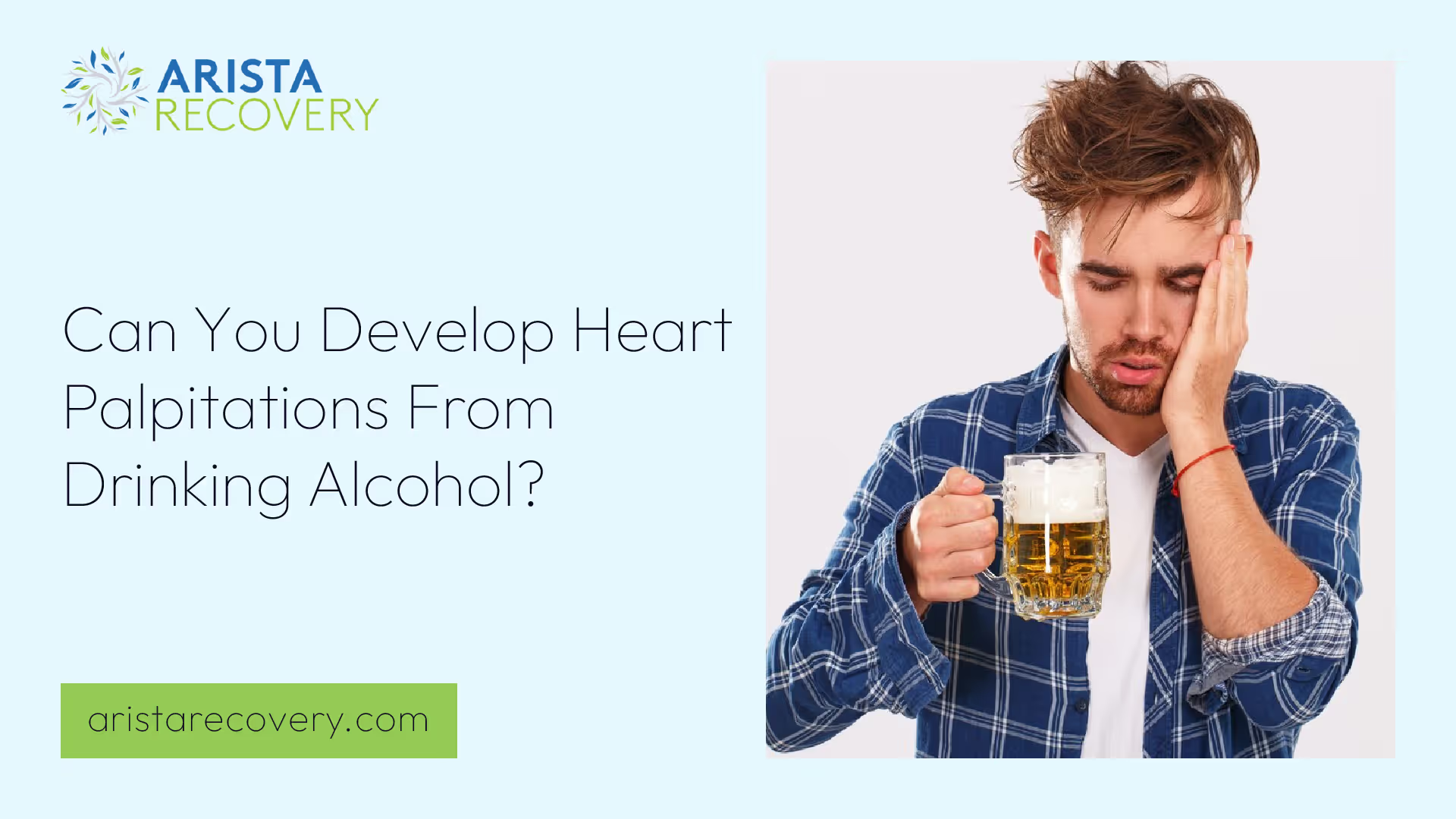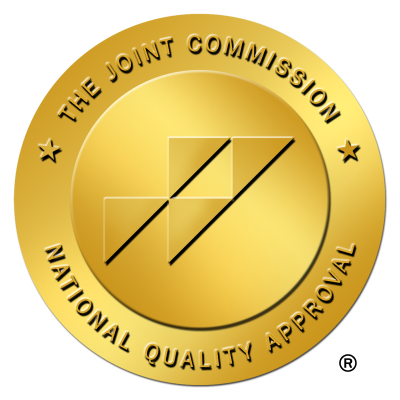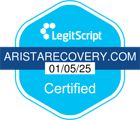Can Your Heart Heal After Addiction?

Impact of Substance Abuse on Heart Health
Substance abuse, whether it pertains to alcohol or drugs, can have profound effects on an individual's heart health. Understanding these effects is crucial for individuals seeking recovery and their families.

Risks of Substance Abuse on the Heart
Substance abuse leads to an array of cardiovascular complications. Chronic smoking from cigarettes is notably harmful for the heart and can lead to serious risks for heart health. The use of methamphetamine, a drug whose use is steadily growing, is also dangerous; heart disease is the second largest killer of meth users behind accidental overdose.
Substance abuse can lead to heart disease and other cardiovascular complications, including arrhythmia, endocarditis, and a weakening of the heart muscle. Other conditions linked to substance abuse include high blood pressure, irregular heart rhythm, heart attacks, and heart failure.
Effects of Cocaine on Cardiovascular Health
Cocaine, a potent stimulant drug, is known for its deleterious effects on the heart. Use of this substance can lead to serious medical emergencies such as irregular heart rhythm, congestive failure, weak pumping, tearing arteries, and infections in the heart.
These conditions can potentially improve with cessation of substance use and appropriate medical intervention. While not all substance-related cardiac changes are reversible, quitting drug and alcohol use can improve cardiac functioning and prevent conditions from worsening. When it comes to recovery, the question of 'can your heart heal after addiction?' is indeed a hopeful one.
The journey towards heart health and recovery from substance abuse is possible with the right support and medical care. The following sections will delve deeper into the process of heart healing and the support resources available for those seeking recovery.
Recovery and Heart Healing
Recovering from addiction involves not only overcoming the physical and psychological dependencies on drugs and alcohol but also healing the body from the damage caused by these substances. A key area of concern is heart health. The question often arises - can your heart heal after addiction? The good news is that, in many cases, the answer is yes.
Improving Cardiovascular Function after Substance Abuse
Substance abuse, involving drugs or alcohol, can lead to heart disease and other cardiovascular complications, including arrhythmia, endocarditis, and a weakening of the heart muscle. Other conditions linked to substance abuse include high blood pressure, irregular heart rhythm, heart attacks, and heart failure. These conditions can potentially improve with cessation of substance use and appropriate medical intervention [2].
While not all substance-related cardiac changes are reversible, quitting drug and alcohol use can improve cardiac functioning and prevent conditions from worsening. For instance, stopping methamphetamine use can improve heart function and symptoms for individuals who developed meth-induced cardiomyopathy [3].
Benefits of Quitting Alcohol and Drugs
The benefits of quitting alcohol and drugs go beyond just improving cardiovascular function. Stopping drug and alcohol use can improve an individual’s overall health. For example, when an individual stops drinking alcohol, cardiovascular function can significantly improve. In fact, even a significant decrease in alcohol consumption can elicit improvement.
For individuals who smoke cigarettes, quitting drastically reduces the risk of catastrophic cardiac events. For instance, 4 years after stopping tobacco use, a person’s risk of stroke drops to the same level as those who have never smoked.
In conclusion, while substance abuse can have severe effects on the heart, recovery and healing are possible. The sooner a person quits substance use, the sooner the body can begin to heal. With the right medical intervention and support, individuals can improve their heart health and overall well-being. It's never too late to seek help and start the journey towards recovery.
Specific Substance Effects on the Heart
Understanding the specific effects of various substances on the heart is crucial to grasp the gravity of substance abuse and its impact on one's health. In this section, we will discuss the effects of cocaine and methamphetamine on heart health.
Cocaine and Heart Complications
Cocaine, known for its damaging effects on the heart, can lead to serious medical emergencies such as irregular heart rhythm, congestive failure, weak pumping, tearing arteries, and infections in the heart. It can also lead to heart problems such as heart attacks, cardiomyopathy, and aortic dissection.
Researchers have long noticed an association between non-fatal heart attacks and regular cocaine use in adults. Cocaine users have higher rates of multiple factors associated with higher risks of heart attack and stroke. Cocaine, often referred to as “the perfect heart attack drug,” increases the risk of a heart attack significantly [5].
Methamphetamine and Cardiovascular Risk
Methamphetamine use poses significant cardiovascular risks. Methamphetamine can cause heart rate irregularities, heart attacks, and an increased risk of sudden cardiac death. The cessation of drug use can decrease the risk of developing cardiovascular disease and improve heart muscle health [4].
Both cocaine and methamphetamine pose serious threats to the heart, increasing the risk of various cardiovascular diseases and conditions. However, it is important to remember that the cessation of drug use can lead to significant improvements in heart health and a reduction in the risk of heart disease. This reaffirms the notion that heart healing after addiction is indeed a possibility.
Mental Health and Substance Abuse
The intersection of mental health and substance abuse is a complex field that requires careful navigation. Understanding the close relationship between addiction and mental disorders can shed light on the path to recovery and heart healing.
Co-Occurrence of Mental Disorders and Addiction
Addiction and mental disorders often co-exist, creating a complicated web of health issues. Drug use can potentially trigger or worsen conditions such as anxiety, depression, or schizophrenia. Conversely, individuals may turn to drugs to alleviate psychiatric symptoms, a coping mechanism that can exacerbate mental disorders and increase the risk of addiction.
Substance abuse disorders, including methamphetamine abuse, opioid use/abuse, and alcohol abuse, are significantly associated with hospital encounters for heart failure. This association is comparable to diagnoses such as atrial fibrillation, ischemic heart disease, and chronic kidney disease [7]. Chronic substance abuse, irrespective of the specific substance, can lead to heart disease and other cardiovascular complications.
Integrated Treatment Approaches
Recognizing the dual nature of these disorders, integrated treatment approaches are essential for effective recovery. Such approaches aim to address both mental health conditions and substance abuse concurrently. By doing so, the treatment can target the underlying issues that contribute to substance use and promote overall wellbeing.
Research shows that individuals who have stopped using drugs can experience improved heart function, including normalization of heart rate and blood pressure. The cessation of drug use can decrease the risk of developing cardiovascular disease and improve heart muscle health [4]. This suggests that recovery from addiction, coupled with appropriate mental health treatment, can indeed lead to heart healing.
Support is available for individuals struggling with mental health in relation to substance use. Encouragingly, many treatment programs now recognize the need for integrated services and are offering combined treatment plans [8].
The journey to recovery from addiction and mental health disorders is a challenging path, but no one has to walk it alone. With comprehensive, integrated treatment, individuals can reclaim their health and experience the healing of both mind and heart.
Support and Resources
Recovering from substance abuse is a challenging journey, often requiring a comprehensive support system. Various resources and programs can aid individuals and families affected by substance abuse, providing crucial assistance in the healing process.
Culturally Sensitive Programs for Substance Abuse
Recognizing the diversity of those impacted by substance abuse, there are culturally sensitive programs designed to cater to the unique needs of various communities. For instance, Health Canada offers The National Native Alcohol and Drug Abuse Program and the National Youth Solvent Abuse Program, which provide resources tailored for First Nation, Inuit, or Métis individuals seeking help with substance use.
These programs take into account cultural traditions, beliefs and societal norms, creating an environment where individuals can feel comfortable and understood. This cultural sensitivity can play a significant role in enhancing the effectiveness of the recovery process.
Overdose Prevention and Mental Health Support
Overdose prevention is a critical aspect of recovery and substance use management. Various services across Canada, including overdose prevention resources, are available for individuals needing assistance.
Additionally, given the strong links between substance use and mental health, support is also available for individuals struggling with mental health issues related to substance use [8]. This integrated approach to treatment addresses both the substance use disorder and any co-occurring mental health conditions, offering a comprehensive path to recovery.
Moreover, resources are available for Canadians living with pain and using substances for the treatment of chronic pain. These resources provide guidance on safe use and information on alternative pain management strategies [8].
Beyond these specific programs, a variety of resources, support services, and programs are accessible for those seeking help with substance use. These include harm reduction centers, treatment centers, and online support groups. By leveraging these resources, individuals on the path to recovery can find the specific help they need to rebuild their lives and health after addiction.
Cardiac Rehabilitation and Recovery
The path towards recovery after battling substance abuse poses numerous challenges, particularly for those whose hearts have been affected. This section will discuss the crucial role of cardiac rehabilitation and provide guidance on resuming normal activities post heart attack.
Importance of Cardiac Rehabilitation
Cardiac rehabilitation serves as an essential tool in the journey towards healing the heart post addiction. It is a personalized exercise and education program that teaches individuals how to improve heart health after heart surgery. The focus is on exercise, a heart-healthy diet, stress management, and a gradual return to usual activities.
Those who engage in cardiac rehab after a heart attack generally live longer and are less likely to have another heart attack or complications from the heart attack. Most hospitals offer cardiac rehabilitation starting in the hospital, and the program typically continues for a few weeks or months after the patient returns home. If cardiac rehab is not recommended during your hospital stay, it is advisable to ask your provider about it.
Cardiac rehabilitation programs can also address mental health concerns. People who feel sad, scared, or depressed after a heart attack are encouraged to tell their care provider, as these programs can help prevent or treat depression after a heart attack.
Resuming Normal Activities Post Heart Attack
Returning to regular activities after a heart attack is a significant aspect of recovery and rehabilitation. However, it must be done gradually and under the guidance of healthcare providers.
One important aspect that people often have concerns about is resuming sexual activity. Most people can safely return to sexual activity after recovery from a heart attack, but it is recommended to consult with a care provider first. The timing of resuming sexual activity may depend on physical comfort, emotional readiness, and previous sexual activity.
In conclusion, the question of 'can your heart heal after addiction?' can be answered positively. With the right rehabilitation program and by taking careful steps towards resuming normal activities, individuals recovering from substance abuse can make significant strides towards restoring their heart health. While the journey may be challenging, the outcome can undoubtedly be rewarding.
References
[1]: https://www.addictioncenter.com/addiction/heart-health/
[3]: https://americanaddictioncenters.org/health-complications-addiction/substance-abuse-heart-disease
[4]: https://www.newhorizonscenterspa.org/blog/can-your-heart-heal-after-addiction
[5]: https://www.heart.org/en/health-topics/consumer-healthcare/what-is-cardiovascular-disease/illegal-drugs-and-heart-disease
[6]: https://nida.nih.gov/publications/drugs-brains-behavior-science-addiction/addiction-health
[7]: https://www.ncbi.nlm.nih.gov/pmc/articles/PMC6980459/
[8]: https://www.canada.ca/en/health-canada/services/substance-use/get-help-with-substance-use.html
[9]: https://www.mayoclinic.org/diseases-conditions/heart-attack/diagnosis-treatment/drc-20373112


